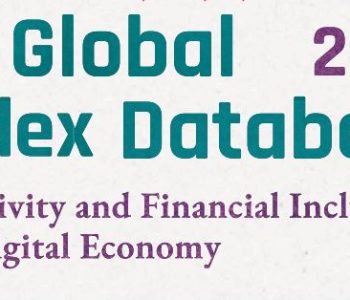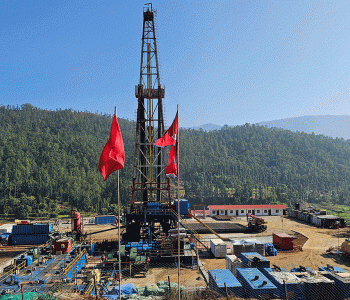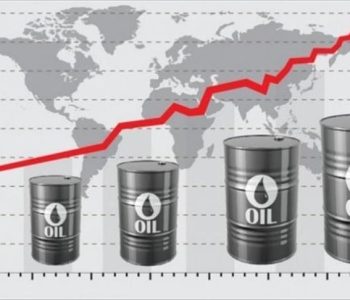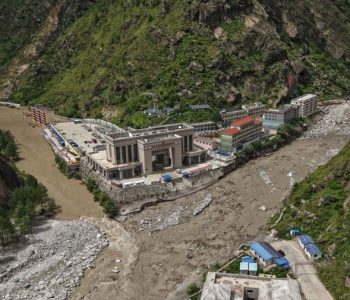FinMin Sharma claims to resolve liquidity problems by January end

Nepalese rupee is the official currency of Nepal.
KATHMANDU: Finance Minister Janardan Sharma said the economy is not in crisis. He mentioned that though the foreign exchange reserves have declined, liquidity crunch has erupted, interest rates and inflation have risen still the economy is not in crisis.
Speaking in a meeting organized by Confederation of Nepalese Banks and Financial Institutions (CBNFIN) Sharma said in spite of some pressures on economy, the situation is not that bad. “Everyone is concerned about the economy, its future and its future development, and its natural”, he further added,” There isn’t any other reason but the pandemic.” The pressure on economy isn’t that much as it’s visible from outside, clarified Sharma.
Finance Minister said though the economy is not in crisis, the government is alert on this issue. “Economy isn’t in extreme crisis, but in a state where we need to be alert”, he said, “We are alert from this, and trying our best.” At present, we are facing sharp increment in liquidity crisis in bank, which might resolve by the January (next week). He said the ministry is making continuous effort in spending capital. Similarly, policies are being formulated to reduce imports to increase the foreign exchange and to bring the foreign exchange from NRNs.
Earlier speaking in the program, Shekhar Golchha, President of Federation of Nepal Chamber of Commerce and Industry (FNCCI), said the goal of the economy growth can’t be achieved without the problem of liquidity. “Liquidity crisis is the biggest problem of the country”, he said,” if the problem isn’t solved on time the country will fall in problem, is possible to result in failure of the nation”. He pointed out that if the current situation isn’t improve now then within few months there will be crisis in buying medicines, petroleum products, or the basic commodities due to lack of foreign exchange.
Pawan Golyan, Chairman of CBNFIN, said if the problem of balance payment isn’t solved on time, there will be crisis even in importing foods. Kamleshwor Aggrawal, senior Chairman of the FNCCI, said the economy has reached in the phase of sensitivity and challenges. He said the government’s policy of discouraging import trade had affected revenue, increased commodity prices and led to shortages.
Finance Minister Janardan Sharma urged the bank operators not to look only at profit in the case of crisis. He urged, in the case of crisis we all should focus in everyone growth not only towards the profit. He said, he is ready to have table discussion on the matter of reduction of tax levied on banks. Earlier, Pawan Golyan, Chairman of CBIFIN, had requested to reduce tax of 30 percent levied on the banks. In reply, Sharma said, “We can have a talk on the topic of tax reduction, we will discuss, but in the case of the crisis instead of focusing more on the profits we should look after everyone growth too.”
Bhoj Bahadur Shahi, vice-chairman of CBIFIN, said that the bank did not only look at the profit but also gave 2 percent relief to the industrialists by eliminating the profit. “The profit of the outside banks is estimated to be billions, but the banks have been able to distribute only 8-10 percent of the profits on average and only 15 percent at most,” he said. Bonus can be distributed by deducting 1 percent reserve.
Golyan, Chairman of CBIFIN, said that 15 percent Covid tax should be levied on customs for import substitution and protection of industry. Stating that the policy of discouraging imports could affect the revenue 15 percent tax should be levied.
He also said that the policy of Nepal Rastra Bank (NRB) to keep 100 percent margin on the import of specified goods was right. But the Federation and the Chamber protested against it. Golccha, president of FNCCI
said that consumers would not be able to afford the 15 percent Covid tax. He says that it will increase inflation. Similarly, Aggrawal, vice-chairman of the chamber, said that the policy of keeping margins on imports has increased the cost of trade and made it impossible for industries and businesses to run.
Finance Minister Janardan Sharma said,” there is no need of the lockdown for the prevention of Covid cases. In the current scenario, we will not be able to cope the economy”, he said,” we need to find alternative measures to stay safe, but the lockdown is not an option for now”.














Facebook Comment